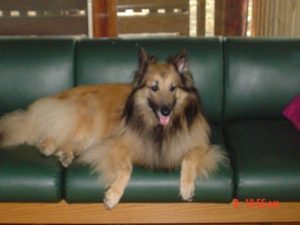It is always a fun guessing game to wonder if writers have taken people from their own lives and turned them into characters.
There are some fairly obvious examples, in political satire, for instance. George Orwell’s animals in Animal Farm each represented a political character or class.
Norah Ephron got some revenge and also a very good book out of her marriage to Carl Bernstein when she wrote the best-selling Heartburn.
Some characters-based-on-people are a bit more subtle. Virginia Woolf’s mother in To the Lighthouse is far more ephemeral than her busy mother of seven was in real life and yet she is decidedly the center, even in death, of everyone’s world in the novel.
How much do writers take from real life and how much do they make up?
That is a hard question to answer for any writer, but I will make an attempt to explain the bases of characters in American Queen as an example.
The main character is so decidedly not me, she is actually made up of aspects of my life that were missing at the time I wrote the book—a life as an ambassador’s daughter, wealthy beyond most anyone’s ordinary life, even in DC, with a lively, involved mother right down the street, a mysterious, desirable husband, and five children.
And yet she thinks like me, acts like me, an odd mixture of ditz and intellectual.
I was recently featured in Lisa Tener’s Spotlight on her How to Write a Book site and it was a really fun interview because Lisa got me to think about the characters in ways I hadn’t already! She describes the main character as being very intelligent yet also have a bit of “mommy brain” (which many of us know exactly what this is like).
I love the “mommy brain” description! Yes, she is a bit of a puzzle—strong and accomplished, yet confused at this point in her life. She has taken several unexpected turns, starting with marrying a spy. She did complete her Ph.D. in Behavioral Economics at Georgetown University. The next logical step in her career would have been to go into academia—but her spy husband can’t leave DC, they by then they have with five children under seven. Her parents very conveniently live right down to street to help with the kids and also with the métier Agatha takes up. Like her mother, she becomes a renowned DC hostess. She loves her life, but is somewhat stunned by it. Her rebelliousness comes out in pursuing a friendship of which her husband disapproves and finally in being part of the unraveling of an international attempt to undermine the US government. So she does find a clear role, eventually.
The mother and father are decidedly not my parents—who lived largely academic lives in the small town of Charlottesville. The father is an ambassador, a politician. Her mother is a DC high society hostess of renown—and also quite possibly a spy behind the scenes.
And, yet, her father is a Quaker, which mine was. And her mother has the gift of charming many people, much like my own.
Yes, they all have antecedents of some kind in my life. Although, as usual, they took on lives of their own as I wrote them. The mother started out much like my own mother, but she definitely turned into something of a quiet Mata Hari and now I think she might have her own book, along with the British nanny and Jesuit priest dissertation advisor. Is everyone a spy? I had to start wondering! I am related to someone who is married to a CIA agent and I had a lot of fun interviewing her about what that was like. They have a lot of children too, so that inspired the population explosion. A friend of mine just said that the husband is so fictional (in a good way)—but he is actually based on a real person!
The children are fictional, except that my older son is very thoughtful and wise beyond his years. And my younger is red-headed, independent, decidedly his own person.
The husband—now, my friend Kelly really liked him, but when we talked she called him fictional. Which, of course, he is. But he is actually based on a real person. So that is a nice turn upside down of the way it usually goes—that a fictional person reminds us of a real one.
So characters may begin as real people, but they almost always take on lives of their own and can even slip out of your grasp.
I remember reading that Anne Tyler kept her office very empty, very spare, because she felt like it got so full of characters once she started writing.
Almost as if they had come to life, rather than the other way around.
One character that is absolutely based in fact is the puppy Clint brings home. “Queenie” is based on my lovely Belgian Shepherd Dixie Grace who was by my side through thick and thin for 15 years. She is one of several characters in my life to whom American Queen is dedicated.


Leave A Comment